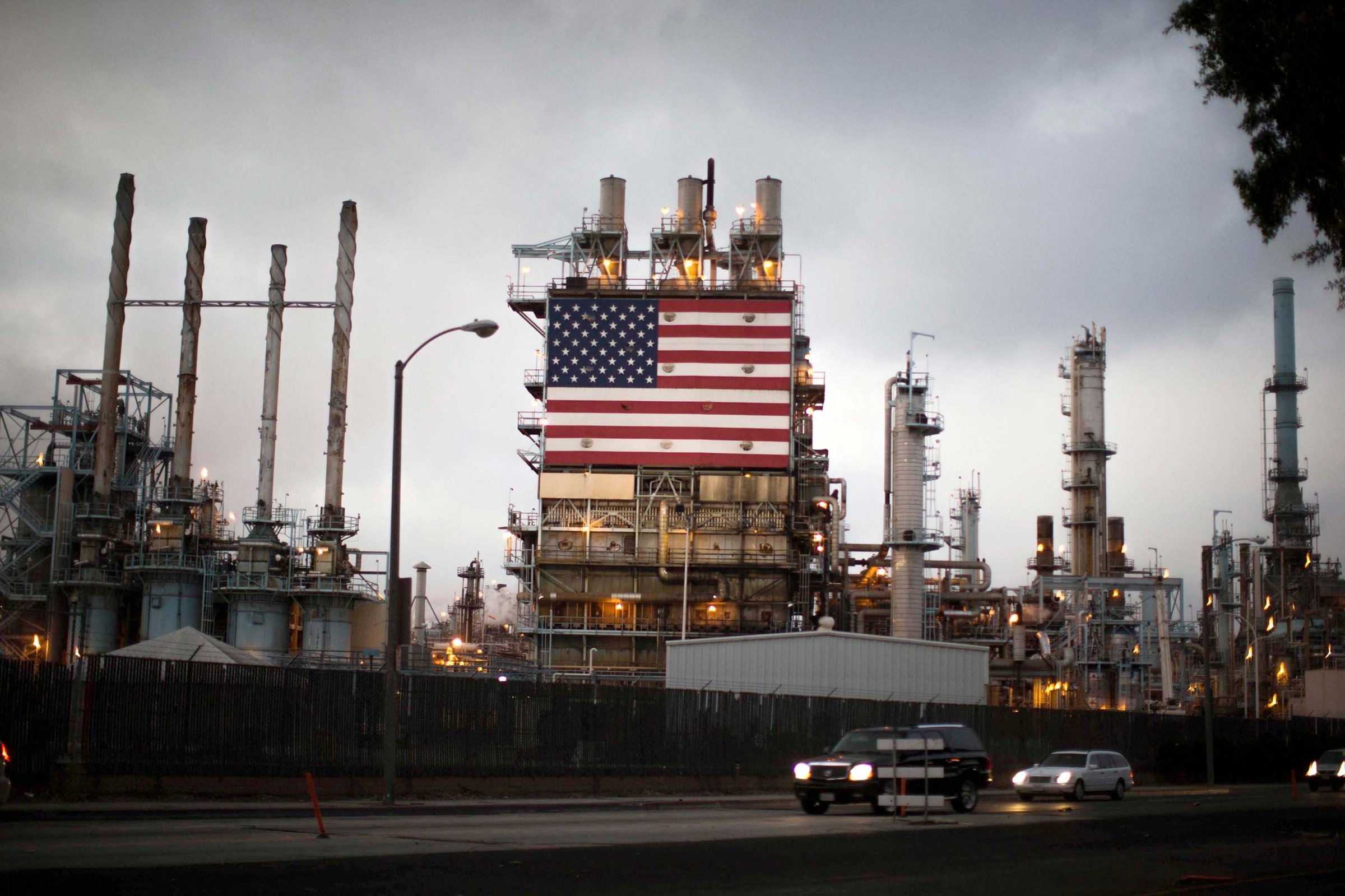
The best leverage the West has over Russia doesn’t come from Washington or Brussels or Kiev, but from the West Texas city of Midland, where the oil business is booming. On a reporting trip to Midland last year, I saw countless drilling rigs piercing the scrubland, tanker trucks clogging the highways and full tables of oil executives at the city’s tony Petroleum Club. The only thing that wasn’t abundant in Midland was hotel space—just about every spare room had been taken by oil workers.
By July this year, Texas was producing more oil than it had in over 30 years, and the U.S. as a whole was pumping more than 8.5 million barrels per day—nearly twice what the country was producing only six years ago. The U.S. energy revolution—the result of extracting previously inaccessible deposits of shale oil by fracking—has flooded the global market with millions of barrels of additional oil. Today the U.S., for years an energy customer, is the world’s biggest producer of crude oil and natural gas liquids.
That increased American production is part of the reason that global oil prices have fallen more than 20% since peaking in late June at about $115 a barrel. Elsewhere, production in Libya, which had cratered following the civil war in 2011, has come back, while fears have receded that the Islamic State of Iraq and Greater Syria would threaten Iraq’s oil fields. At the same time, economic slowdowns in major oil consumers like China and Germany have driven down forecasts for oil demand. After years of triple-digit prices, oil is now below $90 per barrel, and many analysts believe it could fall to $80 or lower.
Another factor is that Saudi Arabia—after years of telling the world to get used to expensive oil—suddenly seems O.K. with cheaper crude. Saudi Arabia is the kingpin of the OPEC oil cartel, with more spare production capacity than any other country in the world, which gives Riyadh major leverage over global prices.
If the Saudis wanted oil prices to stay in the $100-a-barrel range, they could simply cut production. But Saudi officials have reportedly been telling oil investors and analysts that the country can live with significantly lower prices for an extended period of time.
Saudi billionaire Prince Alwaleed Bin Talal has warned his government about the risks of falling oil revenue, but for now, Riyadh seems to bet it can weather cheaper crude—perhaps to edge out U.S. competitors. (The new supplies of U.S. crude are comparatively expensive to produce, and oil companies may reduce drilling if their profit margins are slashed.) Whatever Riyadh’s motivations, given that the other OPEC members won’t cut production on their own—they can’t afford to lose the market share—prices will likely stay low for at least the medium term.
That’s good news for consumers around the world, who will end up paying less for a gallon or a liter of gas. But it’s very bad for petrostates that are wholly dependent on oil revenue—including Russia. Some 45% of Moscow’s planned budget income comes from oil and gas revenue, and in its budget planning, the Russian government assumed that oil would average about $100 a barrel for 2015–17.
As the price of oil has fallen, so has the value of the Russian ruble, which hit an all-time low of 40.438 against the dollar on Oct. 13. Western sanctions put into place after the Ukraine crisis have hurt as well, but it’s the declining price of oil that really threatens the Russian economy.
And cheap oil, more than anything the West can do, could finally curtail Russian aggression. Russian Finance Minister Anton Siluanov recently warned that Moscow could no longer afford a planned multibillion-dollar revamp of its armed forces. Covering the budget shortfalls that would result from a prolonged period of cheap oil could cost Moscow half of its $74 billion reserve fund. President Vladimir Putin has pledged to hold the line on additional domestic spending, including needed infrastructure investment, but that will only make Russia more dependent on its fading oil exports.
Oil is unpredictable, as the people of Midland know well—the walls of the Petroleum Club are decorated with the insignia of old oil companies that have gone out of business. But for now, times are good in Texas—and that’s bad for Russia.
More Must-Reads from TIME
- How Donald Trump Won
- The Best Inventions of 2024
- Why Sleep Is the Key to Living Longer
- Robert Zemeckis Just Wants to Move You
- How to Break 8 Toxic Communication Habits
- Nicola Coughlan Bet on Herself—And Won
- Why Vinegar Is So Good for You
- Meet TIME's Newest Class of Next Generation Leaders
Contact us at letters@time.com